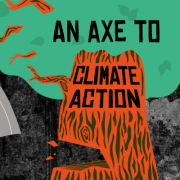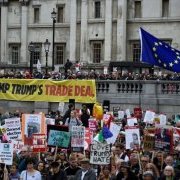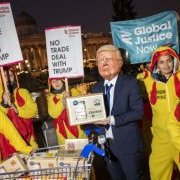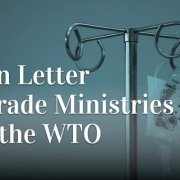18-May-2020
Friends of the Earth Europe
The Energy Charter Treaty takes an axe to climate action.
10-May-2020
Public Citizen
Public Citizen submitted formal comments to the US Trade Representative explaining why negotiating a standard US FTA with Kenya is a very bad idea in general.
6-May-2020
Citizens Trade Campaign
US and UK civil society groups worry trade deal could privilege corporate profits at the expense of the environment, consumer safety, public health and worker rights.
5-May-2020
Friends of the Earth Europe
74 NGOs have written to the EU Commission to demand that genetically modified crops are not pushed onto Europe’s fields and plates as part of a trade deal with the USA.
4-May-2020
Global Justice Now
Coronavirus has exposed the flaws in the pro-corporate agenda that this trade deal is intended to entrench.
30-Apr-2020
Global Campaign
European civil society organisations are deeply concerned about the renewal of the European Union-Mexico trade agreement.
30-Apr-2020
Trade Justice Movement
The Trade Justice Movement has published model Sustainable Regulation and Trade Agreements for the EU-UK relationship, which have been developed in partnership with trade unions, environmental organisations and justice groups.
22-Apr-2020
Friends of the Earth International
An open letter to Trade Ministries and the World Trade Organisation (WTO).
17-Apr-2020
Chile Mejor sin TLC
As is the case in all of the treaties, the parts that are not directly related to trade are non-binding, as the chapter on human rights is.
25-Mar-2020
Observatoire Tunisien de l’Economie
If the intellectual property provisions of the DCFTA are applied, this will have an impact on both the cost of patented medicines and undermine access to affordable medicines.























